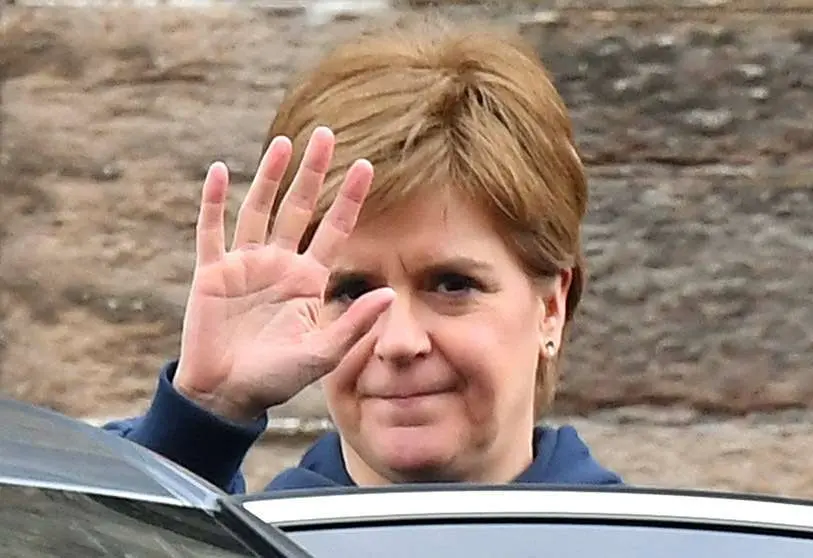Scotland will have no referendum and no Transgender Bill

Nicola Sturgeon has thrown in the towel. Scotland's chief minister finally felt she had no strength to continue leading the Scottish Nationalist Party (SNP) and therefore the regional government in Edinburgh. She almost emulated her exhaustion with the same words used just a few weeks ago in New Zealand by Jacinda Ardern: "I no longer have enough in the tank". Sturgeon alluded to the "brutality" of politics, "much greater now than before", in the speech in which she announced her resignation.
Scotland's longest-serving Prime Minister and its most ardent defender of nationalism, to the point that she had made holding a new independence referendum a priority of her term in office, has thus disappeared from the public arena. The referendum organised by British Prime Minister James Cameron ended in a narrow victory in favour of remaining in the United Kingdom, under the promise of new and substantial economic aid and greater government autonomy, on the assumption that the whole country would remain part of the European Union conglomerate. The subsequent Brexit referendum also had a narrow victory in the United Kingdom as a whole, which did not occur in Scotland, the basis of the SNP's and Nicola Sturgeon's own argument to demand a new separate referendum, in the certainty that Edinburgh could ask with a high probability of success to apply for membership of the European Union.
First Boris Johnson and now Rishi Sunak have denied her the corresponding permission to hold the consultation, a verdict that the hitherto Scottish prime minister has complied with without it even crossing her mind to break the law and take cardboard ballot boxes out onto the streets. Both London and Edinburgh believe that democracy is above all respect for the law and legal procedures. However, Ms Sturgeon considers the failure to deliver on an election promise, especially one of the magnitude of achieving independence, to be sufficient grounds for resignation.
The promise of a Gender Recognition Reform Bill, popularly known as the Transgender Bill, was not of the same stature but of great significance. Holyrood, the Scottish Parliament, had passed it after intense debates that divided not only the parties, but the country itself, as polls showed a growing number of people in favour of Sturgeon's resignation. The proposal to amend the British Transgender Act sought to allow Scottish citizens over the age of 16 to change the gender designation on their identity documents with a simple personal declaration, eliminating the requirement for a medical diagnosis of gender dysphoria.
The blocking of this reform by Rishi Sunak's government provoked an angry response from the Scottish Prime Minister, who described the move as a "frontal attack on our democratically elected Parliament". But, after the dialectical rejection, including the admonition to the entire Conservative Party for the "grave error of not admitting reform", Sturgeon has neither attempted to revolt her Parliament nor to raise the Scottish people in arms, and has preferred her own withdrawal from political life, a conscious gesture that can only be interpreted as an acknowledgement of the failure of her main promises.
In any case, the eight years she has spent at Bute House (the official residence of Scotland's heads of government in Edinburgh) have earned her a reputation as a firm woman of strong convictions and capable of taking on challenges such as the management of the COVID-19 pandemic, which everyone recognises as an example of efficiency and competence.
However, it is likely to be a long time before she is recognised as more meritorious than the two failures in her endeavours for independence and the Trans Law. Whoever inhabits 10 Downing Street in London, it seems that Scotland will have neither.

